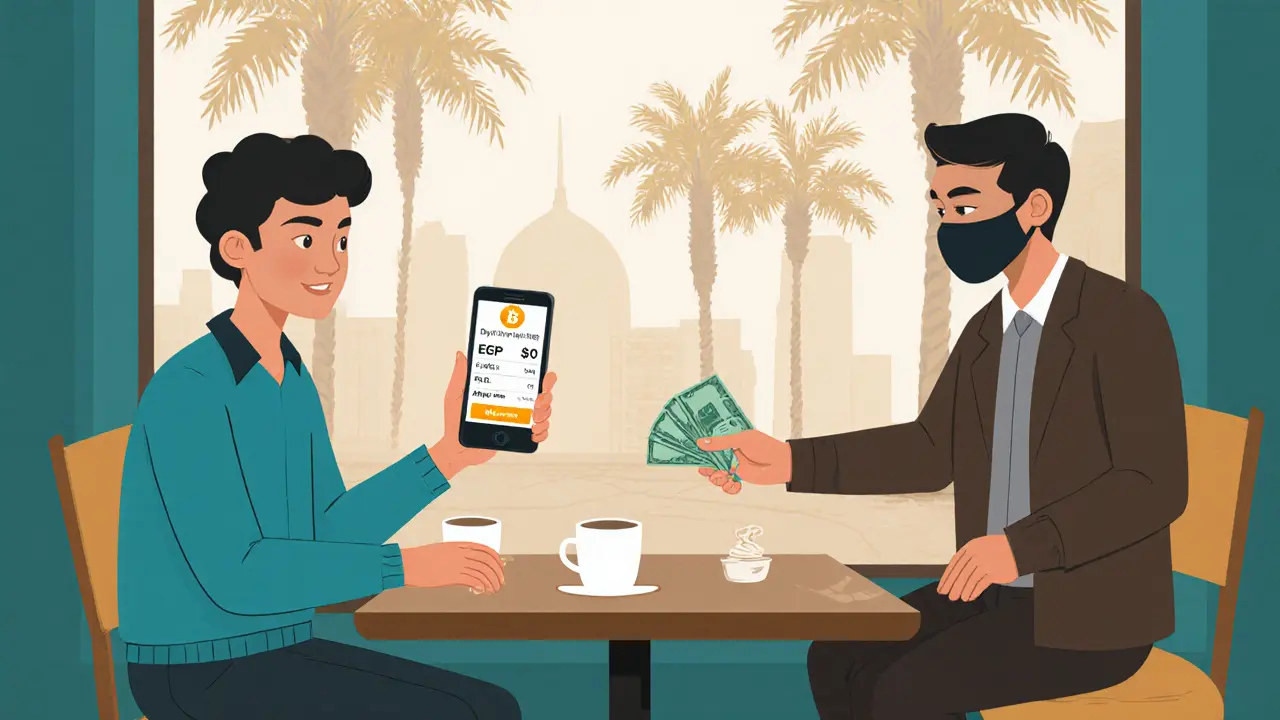Binance Egypt P2P: How to Trade Crypto Safely in Egypt with Peer-to-Peer
When you use Binance Egypt P2P, a peer-to-peer trading system that lets Egyptians buy and sell cryptocurrency directly with local buyers and sellers using Egyptian pounds. Also known as P2P crypto trading in Egypt, it’s one of the few ways regular people can access Bitcoin and USDT without relying on banks that block crypto transactions. This isn’t theoretical—it’s how over 500,000 Egyptians trade crypto every month, according to Binance’s own regional data.
People in Egypt turn to Binance P2P because local banks won’t touch crypto. When inflation hit 30% in 2023, savings in Egyptian pounds lost value fast. So traders started using USDT—Tether—as a digital alternative to cash. Binance P2P lets you deposit EGP directly from your bank account, then trade it for USDT or BTC with someone nearby. The platform holds the crypto until you confirm payment, which reduces scams. But it’s not foolproof. Some sellers ghost after receiving money. Others ask for screenshots of your ID or bank statements, which is a red flag. Always use Binance’s built-in chat, never move off-platform, and only trade with users who have high ratings and hundreds of completed trades.
It’s not just about buying crypto—it’s about survival. Freelancers in Cairo get paid in USD from clients abroad, but converting that to EGP costs 40% in fees through traditional channels. With Binance P2P, they convert USD to USDT, then sell USDT for EGP locally at a better rate. It’s not legal under Egypt’s central bank rules, but enforcement is patchy. Meanwhile, crypto adoption keeps growing, especially among young professionals and small business owners. You’ll find traders in Alexandria using Vodafone Cash, in Giza using Fawry, and in Luxor using bank transfers. Each method has its own risks and rewards.
What you’ll find below are real stories and warnings from people who’ve used Binance Egypt P2P. Some made money. Others lost everything. You’ll see how traders avoid scams, which payment methods work best, and why some P2P deals go bad. There’s also coverage on how Egypt’s crypto rules are changing, what happens if you’re caught trading, and how Binance’s local support actually works (or doesn’t). This isn’t a guide to getting rich—it’s a practical look at how real people navigate crypto in a country where the rules are unclear and the risks are high.
How Egyptians Trade Crypto Underground with P2P Methods
Despite strict banking bans, millions of Egyptians trade crypto through P2P platforms like Bybit and Binance, bypassing regulations with cash, mobile payments, and direct transfers. Here's how it works - and why it won't stop.
Details +